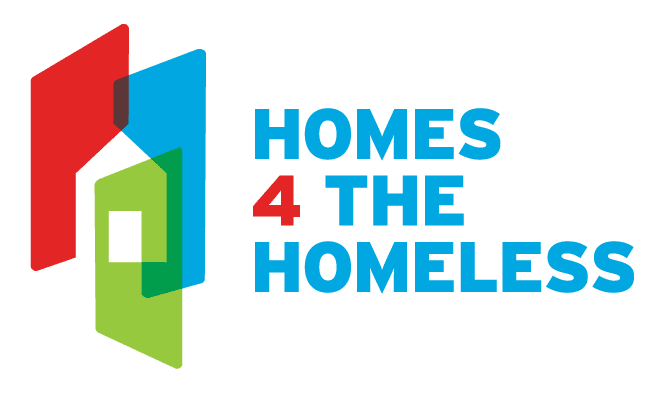Dehumanizing Rhetoric from Public Figures Fuels Attacks, Fear, and Policies that Put Unhoused People at Greater Risk
When Fox & Friends co-host Brian Kilmeade said unhoused people with mental illness should “just be killed,” the backlash was swift. He later apologized, calling his words “extremely callous.” But for people living on the street and those who work alongside them, words like these leave lasting damage.
Advocates say rhetoric like Kilmeade’s is more than offensive; it’s dangerous. The National Homelessness Law Center condemned his remarks, warning that violent language “normalizes brutality” and increases the risk of attacks. Federal data already shows that unhoused people are far more likely to be victims of violence than perpetrators.
That danger is not theoretical. Days after Kilmeade’s comment, eight people were shot at a homeless encampment near downtown Minneapolis. Authorities have not tied the shooting to Fox News, but the timing underscored how unsafe life on the streets already is.
In Los Angeles and other cities, unhoused residents have seen their tents deliberately set on fire. Pastor William “Cue” Jn-Marie, who has spent nearly two decades working in Skid Row, says he has witnessed those attacks firsthand. “You cannot create conditions that increase the chance of violence and not have violence,” he told Invisible People.
A Sector at Breaking Point
Kilmeade’s words landed in a system already stretched thin. As Invisible People founder Mark Horvath and homelessness researcher Iain De Jong noted on the Homeless Unfiltered podcast, the pandemic showed the sector at its best—nimble, creative, and quick to house people in hotels and motels. But those gains evaporated.
“We came out of that with burnout, mass staff departures, and a deeply polarized society,” De Jong said. Since then, rents have soared, benefits have lagged, and the Supreme Court’s Grants Pass ruling has fueled an escalating wave of criminalization.
Nonprofits, De Jong added, are competing like it’s “the Hunger Games.” HUD has leaned more heavily on faith-based providers, raising fears of coercion over care. “The sector is cracking under pressure,” Horvath warned. “Politicians keep demanding more shelters instead of real housing. And that’s not solving the problem.”
Words That Echo History
In 2021, John Oliver devoted a Last Week Tonight segment to homelessness, arguing that the crisis is “grounded in a failure of perception compounded by failures of policy.” He traced the modern narrative back to Ronald Reagan, who cut federal housing subsidies and infamously claimed some people were “homeless by choice.” That idea—treating homelessness as a personal failing instead of policy neglect—still shapes today’s discourse.
Kilmeade’s quip sits squarely in that lineage. When leaders frame unhoused people as disposable, public sympathy erodes—and enforcement fills the vacuum where housing should be.
“When they don’t have solutions, the only solution is violence,” Cue said.
Manufactured Disorder
Oliver also underscored a hard truth: conditions that inflame public frustration—encampments, human waste, visible mental distress—are often produced by policy. Cities that restrict or remove 24/7 toilets, criminalize resting, or sweep encampments without offering real housing don’t solve problems; they manufacture disorder. Residents are told to fear the people suffering, while the people suffering are told they aren’t allowed anywhere.
“You can’t cause distress and then blame people for being distressed,” Cue said.
Beyond Shelters and Sweeps
Advocates caution that more shelters and tougher sweeps won’t reduce homelessness. Horvath is clear about the politics: “Politicians keep demanding more shelters instead of real housing. And that’s not solving the problem.” De Jong describes front-line organizations fighting for scraps while staff burn out.
The proven alternative is Housing First: permanent housing without preconditions, paired with voluntary supports like health care, addiction treatment, and income assistance. Study after study shows this approach improves stability and saves money compared to endless cycles of jail, ER visits, and sanitation crackdowns.
“What people need is a job and a healthy community,” Cue said. At his Peace and Healing Center and Skid Row People’s Market, he tries to model exactly that: belonging, pathways to work, and neighbors who know your name.
A Moral Reckoning
From his faith perspective, Cue is unflinching:
“Jesus said true religion is to visit the orphans and widows in their distress. That means you also visit the homeless in their distress—not cause them distress.”
Kilmeade may claim his words were offhand, but for those living outside, they echo a culture that too often treats their lives as disposable. “They’re desensitizing the public so when they actually do it, it’s not shocking,” Cue said.
Horvath puts it plainly: “Recycled soundbites won’t solve homelessness. What’s needed now is honesty, investment in housing, and a narrative that treats unhoused people as human beings.”
